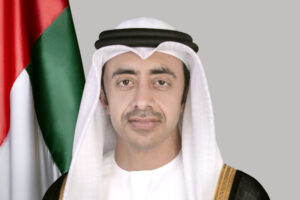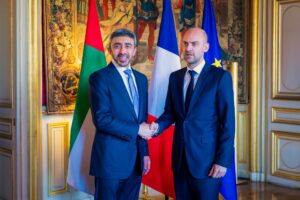UAE to Lead GCC Economic Growth in 2025, Says IMF’s Dr. Jihad Azour

Dubai, The Gulf Observer: The United Arab Emirates is set to lead the Gulf Cooperation Council (GCC) in economic growth in 2025, driven by a dynamic non-oil sector, according to Dr. Jihad Azour, Director of the Middle East and Central Asia Department at the International Monetary Fund (IMF). In a statement to Emirates News Agency at a conference hosted by the Dubai International Financial Centre (DIFC) in partnership with the IMF on the Regional Economic Outlook for the Middle East and Central Asia – October 2024, Dr. Azour forecasted growth rates between 4% to 5% for the UAE’s non-oil sector in 2025, attributing this progress to the country’s strategic economic policies.
Dr. Azour praised the UAE’s ability to adapt swiftly to global economic and geopolitical developments, underscoring its role as a critical hub connecting major economic blocs and facilitating international events. “Despite global challenges, the UAE economy has demonstrated swift adaptability and leveraged modern technology to excel,” he stated, adding that investment in digital technologies, renewable energy, and green initiatives has bolstered the nation’s economic resilience and sustainability.
The IMF official highlighted the UAE’s sustained reputation as a premier destination for global investments, emphasizing its advancements in sectors like technology, digital infrastructure, and renewable energy. He credited landmark events like Expo 2020 Dubai and the COP28 climate conference with enhancing the UAE’s global appeal.
“Dubai, in particular, has emerged as a safe haven for investors and a strategic destination for long-term planning,” Dr. Azour noted, indicating that investments in high-potential sectors will play a vital role in boosting the UAE and Dubai economies in the coming years.
Turning to the broader Middle East, Dr. Azour observed economic diversity across the region, stating that the priority is to foster stability and improve medium-term growth. He reaffirmed the IMF’s commitment to supporting economies in the Middle East and North Africa, revealing that the Fund has allocated $13.4 billion to the region this year, including support for Pakistan. Economic growth in the region is expected to see a modest improvement, with projections indicating an increase from an average of 2.1% this year to 4% in 2025.


